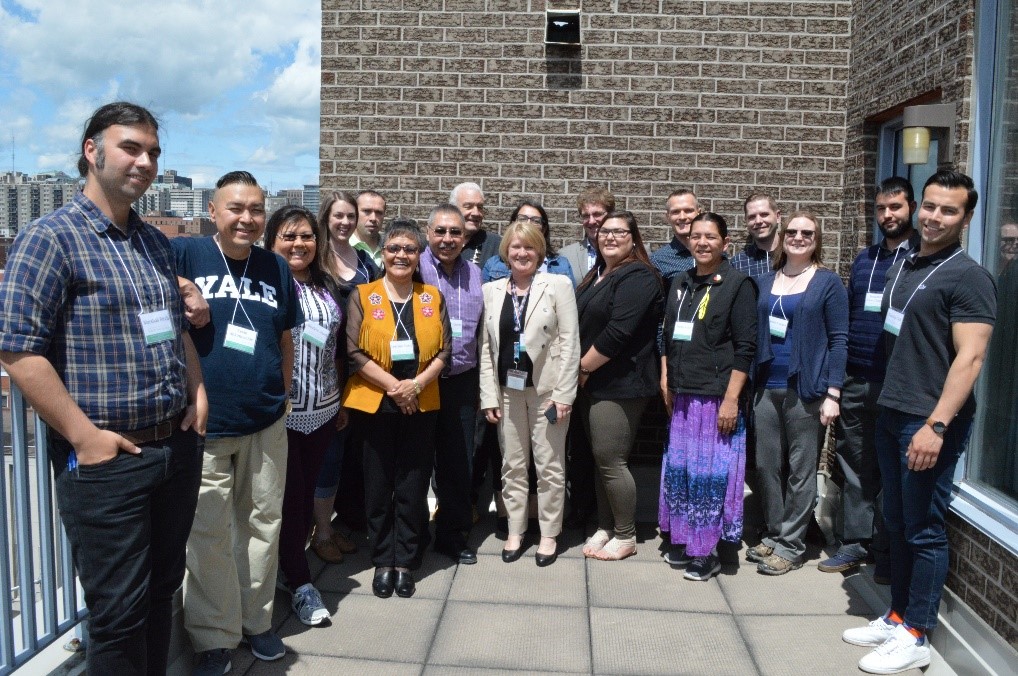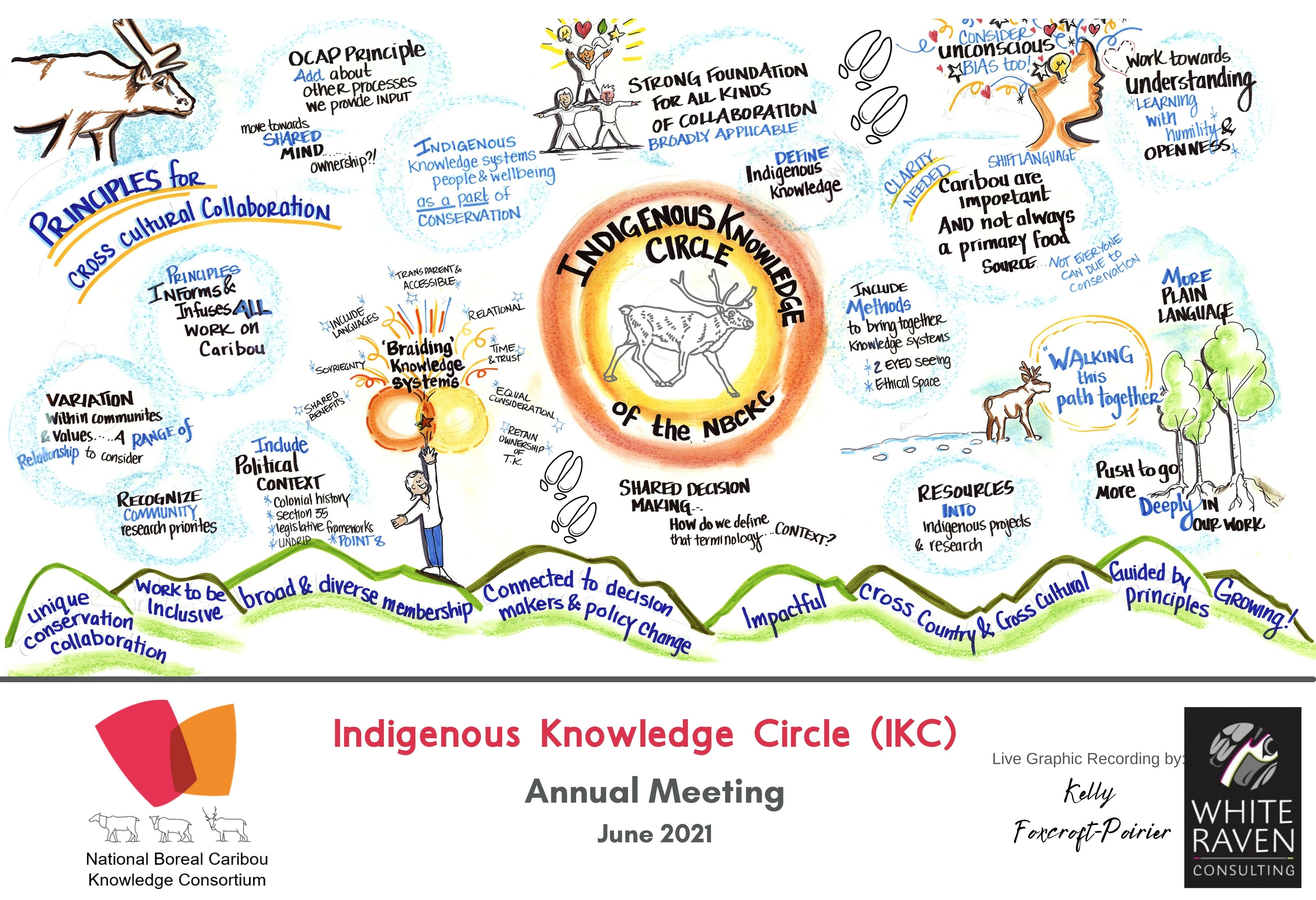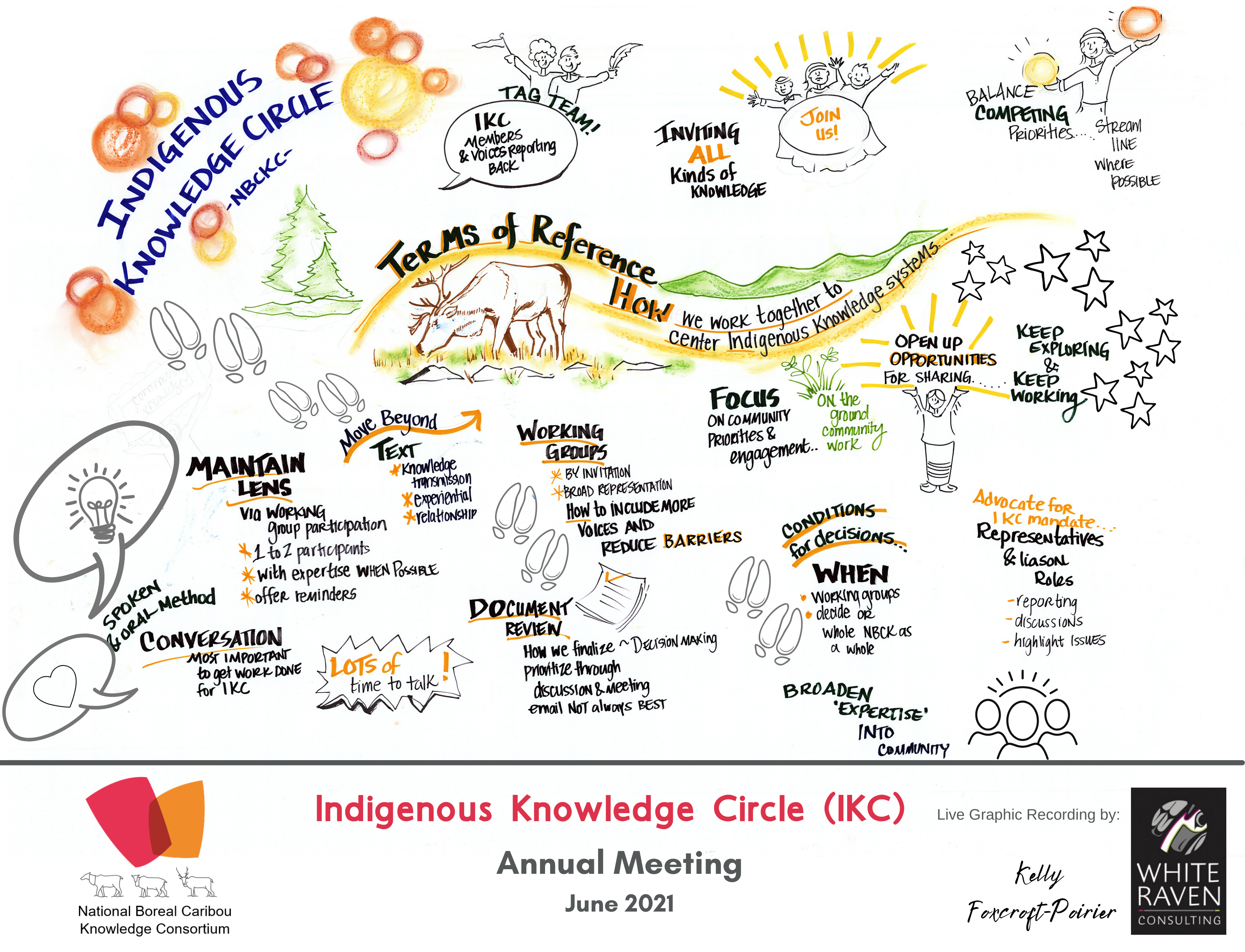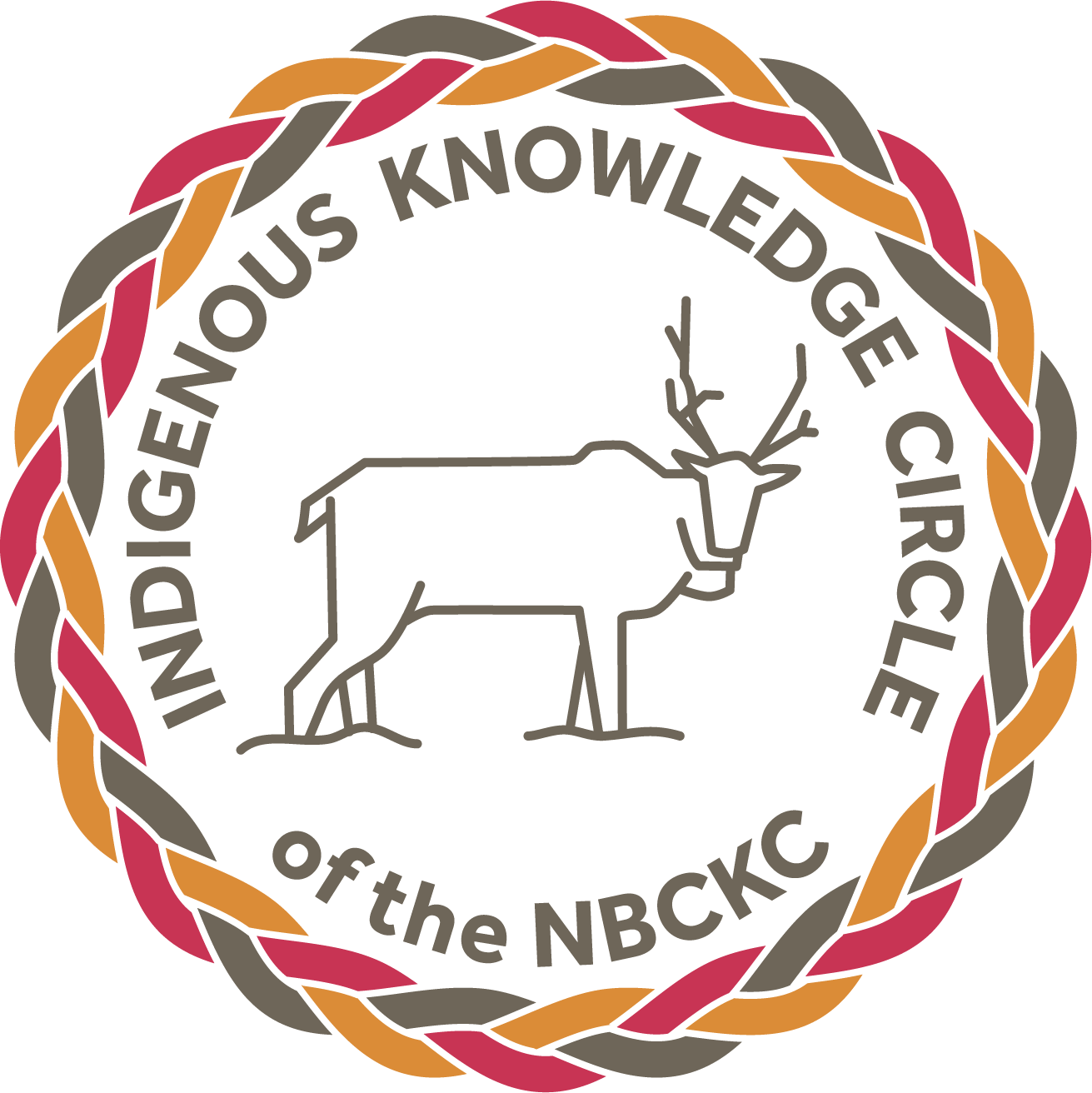Established in 2018, the Indigenous Knowledge Circle (IKC) is a sister group of the National Boreal Caribou Knowledge Consortium (NBCKC). The mandate of the IKC is to advocate for and provide the NBCKC with guidance and feedback on their relationship with Indigenous peoples and Indigenous Knowledge Systems.
| Our Goal | |
|---|---|
While the focus of this Indigenous Knowledge Circle is on Boreal Caribou, this group convenes in solidarity with other stewarding nations focused or working with other caribou herds. | Our ultimate goal (vision) is for First Nations, Métis and Inuit to have relationships with caribou for harvesting, sharing, social and ceremonial purposes, to restore balance to the people and caribou today and into the future. More specifically, we work towards:
|
| What We Do |
|---|
We meet every second month to gather and share information, provide input to NBCKC projects, and advance our own projects. Our work focuses on:
We recently launched Beyond Conservation: A Toolkit for Respectful Collaboration with Indigenous Peoples. It is the result of more than two years of effort by the IKC and is quickly becoming the go-to place to find guidance and resources for collaborating with First Nations, Métis, and Inuit partners on conservation and stewardship. The toolkit contains guiding principles, hundreds of tools and resources, and tips and advice to help non-Indigenous people repair relationships, open doors, build trust, and increase capacity with their Indigenous partners.  |
| IKC Members | |
|---|---|
The IKC's membership includes representation from ~40 Inuit, First Nations, and Métis organizations, communities, regional governments, and co-management boards who are actively involved in the conservation, recovery, and management of caribou. Many IKC members are also members of the NBCKC along with government scientists, academic researchers, industry experts, and representatives from environmental organizations. Both the IKC and the NBCKC are supported by a central secretariat within Environment and Climate Change Canada (ECCC). The IKC is co-facilitated by Amanda Sheedy, a private consultant, and Kristin Clark with the NBCKC Secretariat. We welcome any new members who have relationships with caribou and would like to connect and collaborate with others working to protect caribou. We especially welcome the wisdom and experience of Elders and Knowledge Keepers. If you would like to join the IKC, attend our meetings and contribute to our projects, please contact Kristin Clark at the NBCKC secretariat at kristin.clark@ec.gc.ca |  |
The image below is a graphic recording of the IKC's discussion of the principles that should guide collaborations between Indigenous and non-Indigenous individuals and organizations working together to conserve caribou. This discussion was the basis for a draft of 10 principles for collaboration that are central to the IKC's toolkit: Beyond Conservation: A Toolkit for Respectful Collaboration with Indigenous Peoples.

The image below is a graphic recording of the IKC's discussion of their Terms of Reference, and how the IKC works together with the NBCKC. This discussion informed the IKC's draft Terms of Reference.



